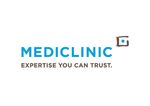BUSINESS PROFILE - Imperial Logistics
←
→
Page content transcription
If your browser does not render page correctly, please read the page content below
Business Name: Unjani Clinics NPC
Registration Number: 2014/089277/08
Public Benefit Org: 930047735
Address: 57 Sarel Baard Crescent, Rooihuiskraal, Centurion, 0157
Contact numbers: 012 621 4300
Contact person: Lynda Toussaint (CEO)
ltoussaint@unjani.org
Website: www.unjaniclinic.co.za
December 2020Introducing the Unjani Clinic Network
Unjani Clinic is an Enterprise Development initiative aimed at:
• Empowering Black Woman Professional Nurses;
• Creating Permanent Jobs; and
• Perfecting a Sustainable Clinic Model for providing primary healthcare.
The Concept
The Unjani Clinic concept was developed out of the need for the urgent transformation in the healthcare
system in South Africa; the fact that our country faces the triple affliction of HIV, AIDS & TB; the fact that
in excess of 80% of our population are dependent on an overburdened public sector system; and a costly
curative-care based model versus disease prevention and promotion.
Unjani Clinic is a network of black women owned and operated primary healthcare clinics that provide
accessible, affordable and quality healthcare to communities in low-income areas. It complements the
re-engineering of our healthcare system by creating community-based healthcare structures at the point
of need. It is an innovative model to address the inequality, which exists between private and public
healthcare services in our country. Whilst private and public hospitals and clinics exist there are too few to
deal with the increasing healthcare burden and private healthcare is too expensive for the bulk of the
population. The innovation behind Unjani Clinic is based on shifting primary healthcare tasks to
Professional Nurses and the ability to leverage a highly developed and extensive private sector distribution
network to ensure more people have access to medicines. Unjani Clinic empowers women within their
communities to own and lead the effort in transforming the healthcare system. At the front-end of the
clinic delivery mechanism, the financial model has been tried and tested to ensure that sustainability
pre-supposes commercial viability. All clinics in the network are given the business support and on-going
coaching and mentoring to succeed and make a profit. Each clinic guarantees 3 full-time sustainable jobs
and has the potential for a further 2 jobs as patient numbers increase. We have proven that Unjani Clinic
offers a higher quality of care and more reliable service compared with other market offerings. The
bundled pricing (R200 per consultation including medicines) is affordable and relevant to the low-income
patients we serve.
The awarding of an Unjani Clinic requires a 5-year Enterprise Development Agreement to be signed by the
Professional Nurse that details the responsibilities of the parties and ensures that the Professional Nurse
remains compliant to the monthly reporting requirements, standard operating procedures, her scope of
practice and all regulatory requirements. Should she breach, and fail to remedy her breach, the Clinic can
be reallocated to another Professional Nurse, so she stands to lose her Clinic due to non-compliance.
December 2020There are currently 81 clinics operating in the Unjani Clinic Network nationally. Imperial Logistics,
Johnson & Johnson Citizenship Trust and Johnson & Johnson Family of Companies, Rand Mutual
Assurance, Pfizer SA, Pfizer Foundation, AECI’s Tiso AEL Development Trust, AVI Corporate Trust,
GlaxoSmithkline Consumer SA, Mediclinic South Africa, Bayer Social Impact Fund and MSD South
Africa (MSD for Mothers) have provided the required Enterprise Development Funding to date to
achieve this. GIZ and Unjani, through a co-operation agreement, worked together to expand the
Network to sustainable levels and have launched programs to expand the Clinics services and income
generating capacity. A successful application was made to the Jobs Fund (National Treasury -
Innovation Round) and with matched funding from Imperial, J&J and others we rolled out 44 Clinics
from 2017 to 2019 with the support of National Government for healthcare infrastructure
enhancement and job creation in our communities. The Elma Foundation has provided 4 years of
funding through their Growth Fund, to assist the NPC in achieving sustainability. We aim to have 100
clinics nationally by December 2021.
Founded on an owner-operator model and social franchising principals, our clinics serve the “bottom
of the pyramid” and under-served markets, ensuring an affordable, quality primary healthcare service
and the supply of quality medicines to the people of South Africa. The clinics are based in the
communities of our Country ensuring that the service is delivered at the point of need.
Our focus is on the employed uninsured population of South Africa (some 10 to 12 million people).
This portion of the population is able to afford to pay something towards their healthcare needs but
are unable to afford private medical aid or private GP / healthcare practitioner rates. By providing an
affordable alternative (R200 consultation fee including medication to treat the diagnosis) to this
portion of the population, we aim to assist the Department of Health in capacity building, by drawing
these patients away from the Government facilities, freeing up capacity for Government to deal with
the unemployed and destitute portion of our population.
The initiative has several components from an entrepreneur incubator (selecting the right kind of
prospective entrepreneur and designing a suitable suite of support services for them), enterprise
development (supporting SMMEs grow) and market linkage (providing business intelligence,
marketing information and links to strategic suppliers) all under one umbrella.
December 2020Development impact
The development outcomes that are being achieved through this project include permanent job
creation for a minimum of 300 people as well as systemic change and transformation within the
healthcare system in South Africa. Based on a clinic network of 81 clinics the Unjani Clinics
manage between 500 000 and 600 000 consults annually. This means that these patients will
have reduced the burden on the public health system (creating capacity in the existing State
facilities) as well as received quality, accessible and affordable private healthcare at the point of
need. The other significant beneficiaries are obviously the patients who are living in the
communities, which we serve.
The nurse owned and operated, primary healthcare model is completely new to South Africa and
is a new, alternative model of care. We believe that Unjani Clinic will help change the face of
healthcare and that it will bring about systemic change. The Unjani Clinic concept is in line with
government’s policy for universal health coverage for all through the provision of an affordable
and accessible “gap service” for those people who have the ability to pay something towards their
healthcare. We aim to work with national, provincial, district and local department of health
representatives to achieve the best possible health outcomes, in the most convenient and
accessible way for the patient. We subscribe to the Batho Pele principles and strive to put the
“Patient First”, and our Communities are supporting the Unjani Clinic Model through the use of
our services evident in our patient numbers.
December 2020Investment in the Nurse
The Enterprise Development investment cost in an Unjani Clinic will depend on the population in
the area surrounding the clinic. There are 2 types of clinic infrastructure – peri-urban (which can
serve up to 1800 patients per month) and semi-rural (which can serve up to 1200 patients per
month). The cost of each of these structures (container infrastructure and all internal equipment,
start-up stock and other requirements) varies from R750 000 to R850 000. In addition, in order to
assist the Professional Nurse in achieving break-even (250 consultations per month), working
capital assistance or operational donations are provided for the first 24 months of trade. This
amounts to approximately R200 000 over the 24-month period. Payment of these funds is
dependent on the Professional Nurses compliance to the Enterprise Development Agreement,
standard operating procedures, on-time payment of suppliers and regulatory compliance. The final
portion of the investment amounts to R50 000, which is utilised by Unjani Clinics NPC over the
5-year period to cover the costs to train, support, administer, mentor, manage and ultimately
evaluate the sustainability of the Clinic. Thus, the total investment cost in an Unjani Clinic (and the
Professional Nurse and the community that she will serve) is between R1 000 000 and R1 100 000
(depending on the infrastructure). From a timing perspective, it takes approximately 6 weeks to 3
months to operationalize a clinic (find a suitable Nurse, site and implement the Clinic).
The initiative is delivered through a Non-Profit Company registered as Unjani Clinics NPC, who acts
as the support structure in the relationship. The legal structure is based in a Non-Profit Company,
without members and is a registered Public Benefit organisation. This NPC structure was put in
place in order to provide maximum funding benefit to the beneficiaries of Unjani Clinics NPC, the
professional nurses that join the network as well as the funders or donors to the NPC (who will
receive the necessary legal and tax exemption certificates). All of the clinics are Exempt Micro
Enterprises – 100% black women owned, and their turnover levels are below R10m annually, thus
the relevant BBBEE affidavits are provided to all funders to ensure that they meet the DTI Scorecard
requirements.
December 2020Impact to Date:
Unjani Clinics has:
• Empowered in excess of 81 professional “nurse-preneurs”; and
• Created permanent employment for over 300 people; and
• Provided in excess of 1 684 000 consultations through the Unjani Clinic Network
since 2013.
Acknowledgment and Thanks to our Funders & Partners:
December 2020You can also read



























































